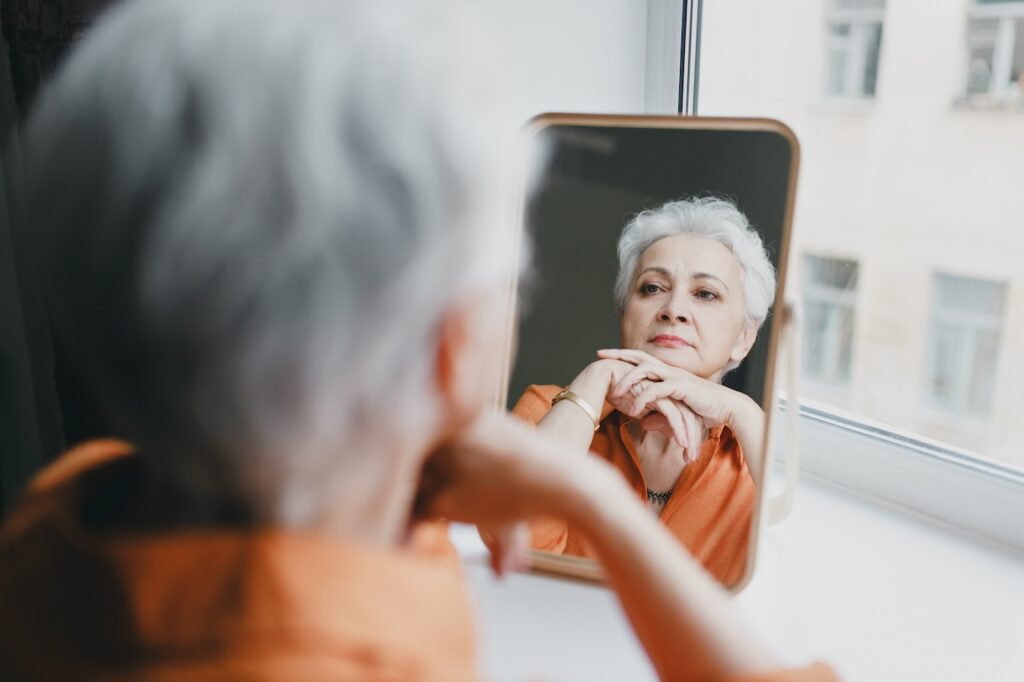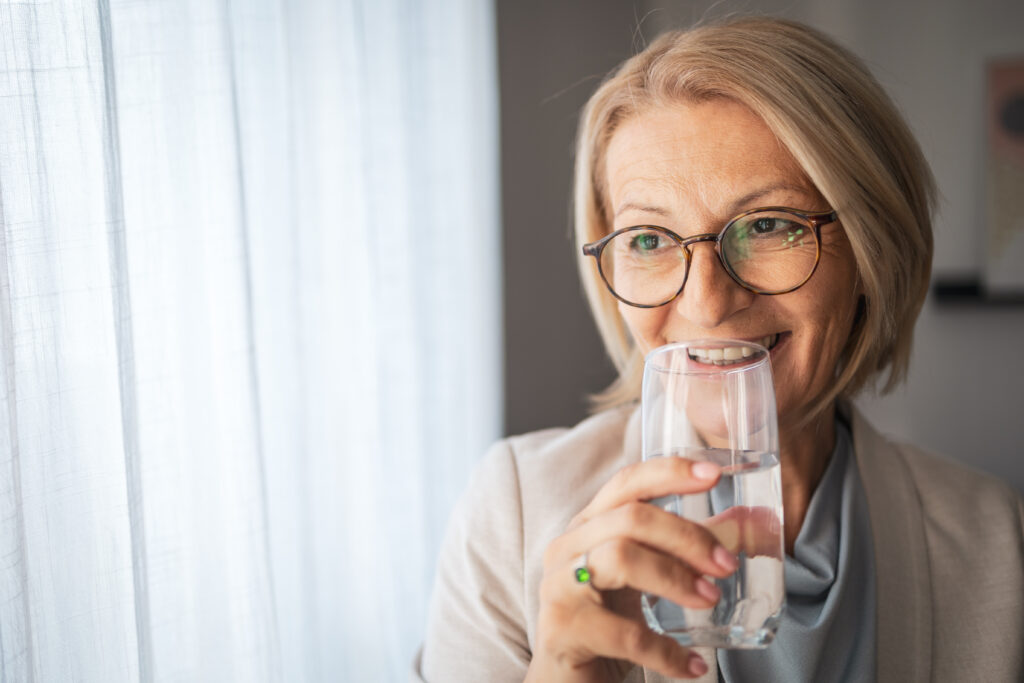Navigating sexuality and intimacy after a breast cancer diagnosis can be challenging. We spoke with sexual health specialist at Fox Chase Cancer Center’s Dr. Jennifer Reese to uncover how to improve interpersonal relationships and intimacy following a diagnosis. Dr. Reese is a behavioral scientist and licensed psychologist focusing on research to improve the quality of life for cancer patients and survivors. Watch the full informative webinar below.
We’ve also transcribed some of the key points from the discussion surrounding sexual health and intimacy.
The following questions and responses have been lightly edited for grammatical purposes.
Q: What are some sexual concerns that can occur after a breast cancer diagnosis?
A: First of all, I want to mention that at least half of breast cancer survivors, and often up into the 70 and 80% mark, report sexual concerns and problems. We know that they’re very common.
As far as the biologic or physical types of sexual problems that can result from breast cancer treatments, we know that vaginal dryness and discomfort, loss of sensation in the genitals, loss of breasts and nipples from surgery resulting in a loss of sensation, and orgasmic problems are some examples of biologic or physical types of sexual problems.
Emotional and motivational issues can also occur. These would include things like loss of sexual desire and body image disturbance which are very common problems for breast cancer survivors. Of course, interpersonal issues too. We know there are many ways that breast cancer and its treatments can affect intimate relationships.
Evidence-based guidance powered by NCCN Guidelines®
Personalized treatment plans shaped by the latest oncology standards—tailored to your diagnosis.
Get started
View your personalized treatment plan in the Outcomes4Me app
Use your diagnosis to unlock personalized NCCN Guidelines®-aligned recommendations.
Continue in app
This can include loss of sexual activity and changes in sexual scripts. Are there things that get in the way of arousal to pleasure and orgasm? Is there pain or discomfort during the sexual encounters? If it hurts then it obviously gets in the way of experiencing pleasure and arousal, too. Are there negative thoughts or intrusive thoughts about body image? Is there anxiety? Is it difficult to relax? All of those things can play a huge role.
Q: Do cancer treatments influence sexual desire?
A: There is some interplay between estrogen and testosterone. When someone is on a hormone therapy that completely eliminates estrogen, that can have an effect on testosterone as well. Testosterone is a major hormone that is responsible for sexual desire. That is one potential biological reason for low sexual desire.
But we know that interest is often responsive. In other words, we’re not thinking about sex all the time, it’s going to be responsive. So it’s really more about if you are receptive. Is this something you could kind of get into? We often hear that there’s no feeling there anymore. There’s no drive even once things get going. I think oftentimes that does relate to what’s happening physically because if things don’t feel pleasurable and if nothing is changing in the body, then that can kind of interplay back into low sexual desire as well.
Truthfully, there are so many factors that can play into sexual interest and desire. But yes, there are absolutely biological explanations. I will say that it can be hard to tease it out because fatigue is one of the key reasons we get as for why breast cancer survivors don’t feel that interested. They’re too tired for sex. Fatigue is real and it’s not in your head.
Q: What is vaginal atrophy?
A: When the vagina is deprived of estrogen, it has pretty dramatic effects. It’s useful to think about what happens when estrogen is there. So prior to menopause, when there’s plenty of estrogen that’s in the body and irrespective of breast cancer, the vagina depends on estrogen to lubricate and widen the vagina and the skin in the vagina stays moist and healthy. It is a certain color and a certain thickness. What happens with the loss of estrogen whether it be ovarian suppression, an aromatase inhibitor, or being put into an early menopause through chemo, the vaginal skin can become much thinner and more fragile. It can atrophy.
When we think about atrophy, we’re thinking about changes in the skin that make it much more susceptible to tears. That means when you have penetration of the vagina from any object, there can be a greater risk of tearing which can be extremely painful and can cause more pain. It can also cause infections. We hear a lot of times that breast cancer survivors have a lot of UTIs (urinary tract infections) and that can happen because the skin of the vagina has become thinner, more fragile, and more susceptible to tears.
Q: How can cancer patients and survivors navigate body changes during or after treatment and intimacy?
A: Body image is a big one. I think there are a lot of things that can potentially be done. Think about what your sexual script says. Does it say that you are naked during sex? Does it say that you use lighting during sex so that your partner can see? Can you shift some of those things to help you feel more comfortable? Those are all options. Sometimes it just takes a little bit of a shift and maybe thinking about doing things a little bit differently can help.
For a lot of people, body image issues are long-standing though, so it can be helpful to talk to somebody who can help you think through these issues. The mirror exercise is an interesting one. It involves you essentially just getting used to looking at your changed body and kind of helping yourself be a little less judgmental about these issues.
If things have changed in terms of what feels good and what doesn’t feel good, talking about it is really important. Oftentimes we hear from partners that they don’t know what feels good anymore. They don’t know how to please their partner. Try the 10 or 20-minute rule. So try kissing and touching for maybe 10 minutes. See if that changes your interest level. Try to think about changing the focus from penetrative sex and orgasm to pleasure and intimacy as the goal.
Spending some time touching with no expectations and making sure that there’s some physical affection within the relationship can be helpful. Of course, don’t forget about ways to build intimacy outside of sex.
To view the entirety of Dr. Reese’s Ask the Expert webinar, click here.
Personalized support for real care decisions
Understand your diagnosis, explore clinical trials, and track symptoms--all in one place.
Get started
Compare treatments, prepare for appointments, and track side effects—all in the app
Built for your diagnosis, Outcomes4Me gives you the tools to make confident, informed decisions—right when you need them.
Continue in app






